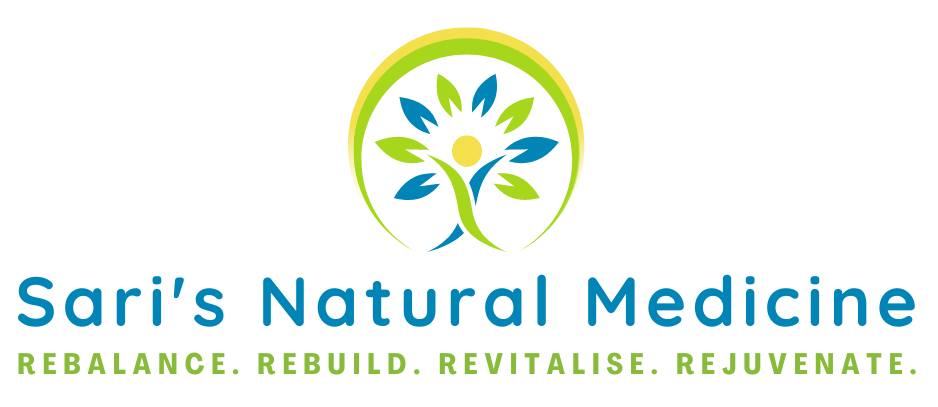What is Vitamin K?
Vitamin K is one of the four fat-soluble vitamins (A, D, E, and K). There are three forms of Vitamin K: Vitamin K1- phylloquinone, Vitamin K2- menaquinones, and Vitamin K3- menadione.
Vitamin K1 is responsible for blood clotting. It is predominantly found in leafy greens and vegetables. Vitamin K2 is important for bone health and cardiovascular health (among others). It is found in animal products. Lastly, Vitamin K3 is a synthetic form that is not recommended to take as it has been associated with liver damage (Badr et al., 1987; Chiou et al., 1998; cited in Institute of Medicine (US) Panel on Micronutrients 2001). This will not be discussed in this article.
Roles of Vitamin K in the body:
- Blood clotting and cardiac function and cardiac output
- Bone formation and repair
- Synthesis of osteocalcin (the bone tissue protein that calcium crystallises) (keeps bone density healthy). Protects against hip fractures and osteoporosis
- Gut functioning
- Converts glucose into glycogen for storage in the liver
- Promotes healthy liver functioning
- Increases resistance to infection
- Prevents cancers of the inner linings of organs
- Role in muscle contractions (muscle cramping if you don’t have enough)
- Important function in the nervous system
- Important role to play within the mitochondria in nearly all human cells!
How deficiency occurs:
Deficiency can occur with inadequate intakes from the diet. When fat absorption diminishes or if drugs disrupt the vitamin Ks synthesis and actions within the body, deficiencies can occur. For example, antibiotics kill the bacteria in the intestines that make Vitamin K. Anti-coagulant drugs and cholesterol-lowering statin drugs interfere with its activity and metabolism. Lastly alcohol affects the functioning of the liver and that is where Vitamin K is stored.
Deficiency symptoms:
- Frequently catching viruses/ illnesses
- Insulin and glucose regulation problem
- Low bone density in women; weak bones and teeth
- Haemorrhaging; bleeding easily, bruising easily
Toxicity:
Subclinical deficiency is common, however toxicity is rare, and there haven’t been any adverse effects noted from high intakes of Vitamin K.
Vitamin K Sources:
K1 is found in green vegetables. Interestingly, the greener the vegetable, the higher the content of K1.
- dark green leafy vegetables
- asparagus
- broccoli
- Brussels sprouts
- Cabbage
- Lettuce
- Cauliflower (I know that isn’t green!!)
Herbs also contain Vitamin K1 and include alfalfa, green tea, kelp, nettle, shepherd’s purse.
Conversely, K2 is found in animal products from animals raised on fresh grass (THIS IS IMPORTANT).

- Beef liver
- Beef mince
- Chicken
- Egg yolks
- Dairy – cheese, butter fat, yoghurt. The older the cheese, the more K2 is contained in it.
- Fermented foods- Natto (a fermented soybean food), sauerkraut, kombucha and kefir. There is 2.75mcg in half a cup of sauerkraut. 100g serve has 108mcg of Vitamin K2.
Some of our Vitamin K2 is synthesised by the beneficial bacteria in your gut and the Vitamin K1 you eat!
Because it is a fat-soluble vitamin, it needs fats with it to be absorbed. So, drizzle some olive oil over your spinach and broccoli, or eat it with eggs and meat. Three times as much Vitamin K1 (phylloquinone) was found to be absorbed when butter was consumed with the spinach (Institute of Medicine (US) Panel on Micronutrients 2001).
When you need to supplement with Vitamin K:
If you are taking or have recently taken antibiotics your level will decrease. This is because the antibiotics kill all the bacteria- beneficial or symbiotic bacteria AND the pathogens. This impacts the amount of Vitamin K you produce in your gut. The antibiotics also hinder Vitamin K absorption from the diet.
Most people are sub-clinically deficient in this key nutrient because most people eat the SAD (Standard Australian/ American Diet), which does not provide enough. These modern diets are almost absent in K2. Eat better, or supplement. It is much better to increase your green vegetable and animal product intakes to ensure you are getting enough and follow a healthy eating plan rather than the common modern diets of today.
Do not take Vitamin K if you are pregnant without speaking to your practitioner first. This is because it can cause a toxic reaction in the baby. If you are on blood thinners (anti-coagulants) check with your practitioner first.
How much should you supplement?
If you are taking drugs that decrease the absorption or wipe out the production, or if your diet is poor, you may need to supplement. However, deciding if and how much to supplement depends on many factors, including your current and past diet and your overall health.
Please book in with Sari to discuss all of your nutritional needs. Treating one particular problem/ symptom isn’t the way to get back your vibrancy. You need to treat your whole body and look at your whole-body chemistry – not just one vitamin or mineral. If you take just one vitamin or nutrient, you run the very real risk of putting another nutrient out of balance. They all have synergistic/ antagonistic effects on each other.
An adult supplementary dose would range between 100-300mcg per day.
Research studies findings:
Vitamin K helps prevent Cardiovascular Disease (CVD), the leading cause of death globally.
Vitamin K2, or menaquinone, reduces the incidence of coronary heart disease in women. A 1993-97 study of 16,057 women aged between 49 and 70 years old were studied. They had no signs of CVD at baseline. Their high intakes of K2 was found to protect them against CVD.
In addition, a high dietary menaquinone (K2) intake is associated with reduced coronary calcification. This is what narrows the arteries. Joline et all studied 564 post-menopausal women and found that adequate menaquinone intake could prevent CVD.
Likewise, the Rotterdam Study (Geleijnse et al Journal of Nutrition 2004) followed 4,807 people aged 55+ years for ten years. They found that when 45ug of K2 was consumed, people had a 50% reduction of arterial calcification. Nothing has been shown to do this!! (Drugs or anything else). A 50% reduction of CVD deaths was also found. And a whopping 25% reduction of ALL cause mortality! Interesting, they found no correlation with K1, only K2.
Want to improve your exercise performance?
McFarlin et al (Applied Physiology Lab, Texas July 2017) found that 8 weeks of supplemented K2, had people reaching their maximum Cardiac output during exercise. There was a 13% increase in participants resting HR. 900+L more blood was pumping through the body every 24 hours!! This equates to more oxygen, more white blood cells, and more nutrients getting to your cells!
Prevention of other chronic disease:
A Dutch study followed 38,000 people over ten years. They found K2 decreases diabetes risk by 20%.
Another study, this time of 23,000 German people, found that K2 decreases cancer risk (developing and dying from it).
Yet another interesting study – the Heidelberg Cohort study, found that K2 decreases prostate cancer risk by 35%, in the 11, 319 men studied. Pretty impressive, I must say.
In addition, many more diseases have been found to have a decreased risk of developing. CVD, Osteoporosis, Diabetes Mellitus, Cancer, Dementia, neuropathy- neurodegenerative disease have all found to have a decreased risk of developing if Vitamin K levels are adequate (Vermeer et al Eur Journal Nutr 2004 43:32535; and Crononberg et al Thrombs Haemost 2007 98(1):120-5)
Not only does it prevent many chronic disease, but Vitamin K also plays a significant role in your health now including: joint health, facial/cranial development, skin health, dental health, muscle functioning, mitochondrial restoration, cardiac function, and ageing (Vermeer et al Eur Journal Nutr 2004 43:32535; and Cranenberg et al Throms Haeomost 2007 98(1):120-5)
Nerve and mitochondrial health:
Nerve health in regard to Vitamin K has also been studied and found to be very beneficial as it protects nerve cells and helps them to grow too (Vos et al 2012 June. Science. 8;336 (6086):1306-10).
Dysfunctions with the mitochondria can cause weakness and fatigue. Vitamin K was found to increase the efficiency of mitochondria in all tissues of the body. It rescues dead and dying mitochondria too! (Vos et al 2012 June. Science. 8;336 (6086):1306-10).
Vitamin K Summary:
As you have learnt, Vitamin K is a very important nutrient that your body needs for healthy functioning. Enjoying a diet rich in green leafy vegetables and grass-fed animal products will go a long way to keep your body stocked with Vitamin K. However, if you are not absorbing it properly, supplementing may be recommended.
Book in with Sari today and have a complete health/ body overhaul. Invest in your body and save yourself time and money from completely preventable illnesses down the track.

References:
Balch, Phyllis Prescription for Nutritional Healing. 4th Edition. 2006
Crononberg et al Thrombs Haemost (2007) 98(1):120-5
Institute of Medicine (US) Panel on Micronutrients. Dietary Reference Intakes for Vitamin A, Vitamin K, Arsenic, Boron, Chromium, Copper, Iodine, Iron, Manganese, Molybednum, Nickel, Silicon, Vanadium, and Zinc. Washington (DC): National Academies Press (US); 2001
Vermeer et al Eur Journal Nutr (2004) 43:32535
Vos et al (2012) June. Science. Vitamin K is a mitochondrial electron carrier that reduces Pink1 deficiency. 8;336 (6086):1306-10.
Rolfes et al (2006) Understanding Normal and Clinical Nutrition 7th Edition.

